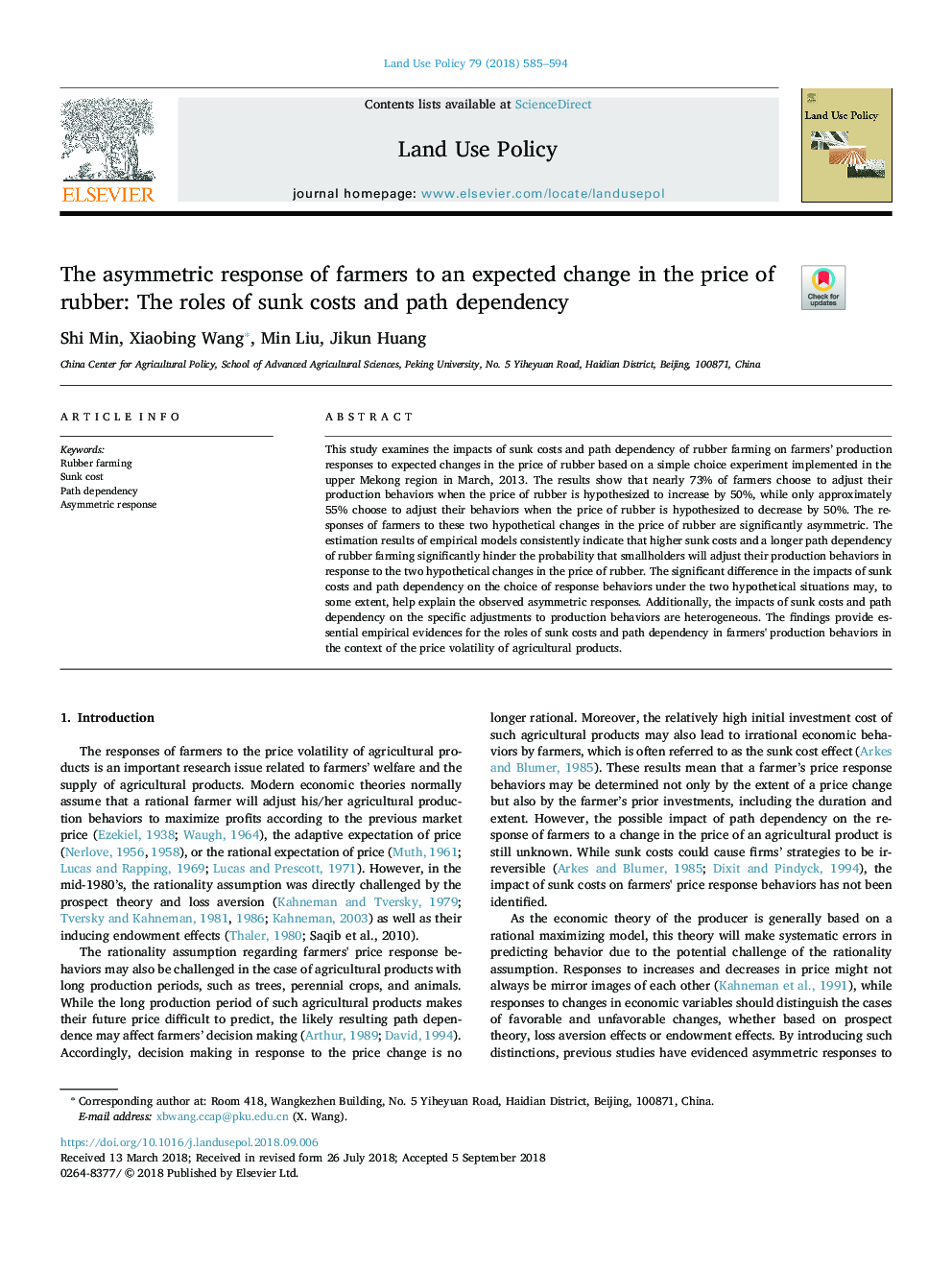| Article ID | Journal | Published Year | Pages | File Type |
|---|---|---|---|---|
| 11000096 | Land Use Policy | 2018 | 10 Pages |
Abstract
This study examines the impacts of sunk costs and path dependency of rubber farming on farmers' production responses to expected changes in the price of rubber based on a simple choice experiment implemented in the upper Mekong region in March, 2013. The results show that nearly 73% of farmers choose to adjust their production behaviors when the price of rubber is hypothesized to increase by 50%, while only approximately 55% choose to adjust their behaviors when the price of rubber is hypothesized to decrease by 50%. The responses of farmers to these two hypothetical changes in the price of rubber are significantly asymmetric. The estimation results of empirical models consistently indicate that higher sunk costs and a longer path dependency of rubber farming significantly hinder the probability that smallholders will adjust their production behaviors in response to the two hypothetical changes in the price of rubber. The significant difference in the impacts of sunk costs and path dependency on the choice of response behaviors under the two hypothetical situations may, to some extent, help explain the observed asymmetric responses. Additionally, the impacts of sunk costs and path dependency on the specific adjustments to production behaviors are heterogeneous. The findings provide essential empirical evidences for the roles of sunk costs and path dependency in farmers' production behaviors in the context of the price volatility of agricultural products.
Related Topics
Life Sciences
Agricultural and Biological Sciences
Forestry
Authors
Shi Min, Xiaobing Wang, Min Liu, Jikun Huang,
